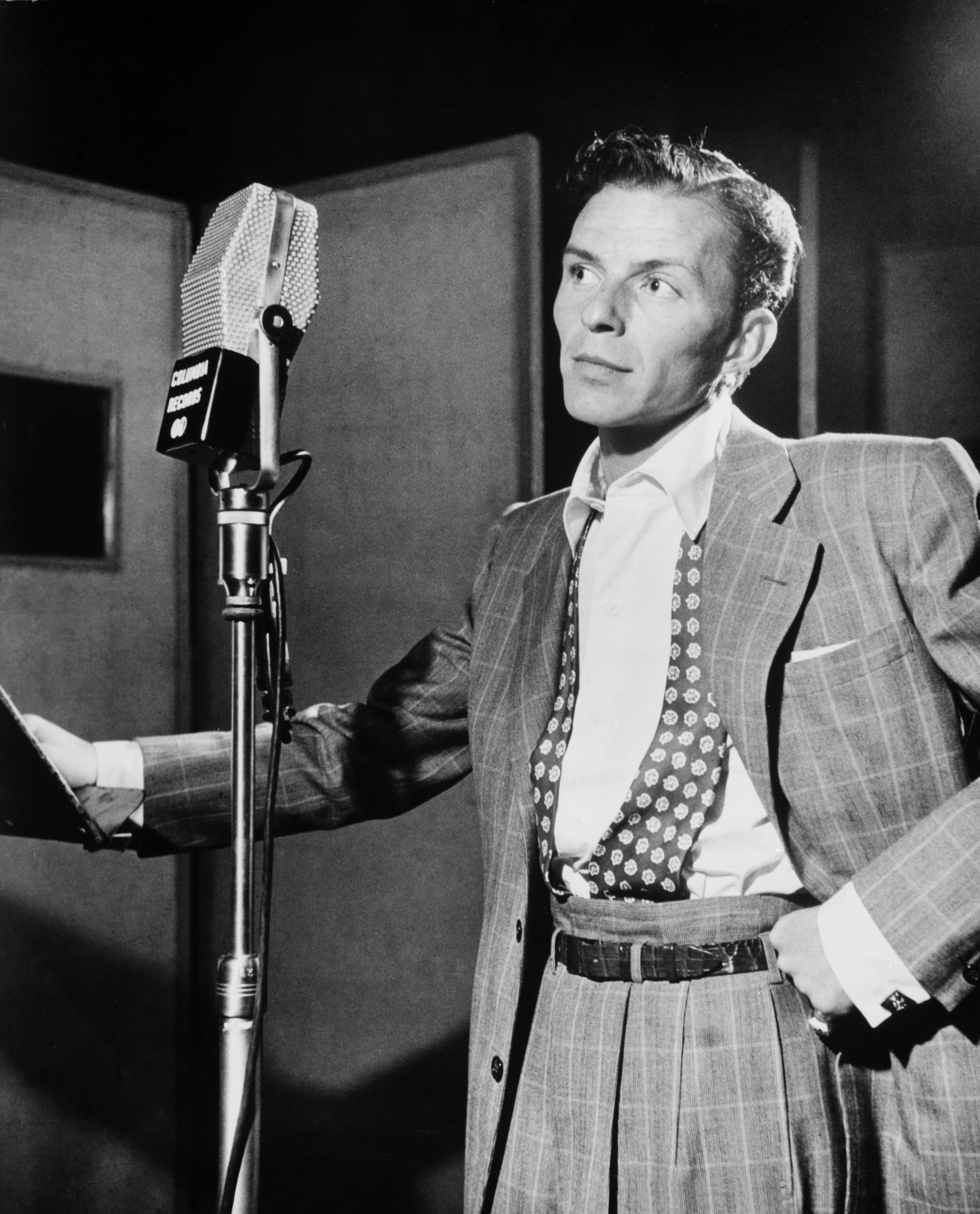TRIBUTE TO FRANK SINATRA
 Frank Sinatra was one of the most popular entertainers of the 20th century, forging a career as an award-winning singer and film actor.
Frank Sinatra was one of the most popular entertainers of the 20th century, forging a career as an award-winning singer and film actor.Born in Hoboken, New Jersey, on December 12, 1915, Frank Sinatra rose to fame singing big band numbers. In the '40s and '50s, he had a dazzling array of hit songs and albums and went on to appear in dozens of films, winning a supporting actor Oscar for From Here to Eternity. He left behind a massive catalog of work that includes iconic tunes like "Love and Marriage," "Strangers in the Night," "My Way" and "New York, New York." He died on May 14, 1998 in Los Angeles, California.
Early Life and Career
Francis Albert "Frank" Sinatra was born on December 12, 1915, in Hoboken, New Jersey. The only child of Sicilian immigrants, a teenaged Sinatra decided to become a singer after watching Bing Crosby perform in the mid-1930s. He'd already been a member of the glee club in his high school and began to sing at local nightclubs. Radio exposure brought him to the attention of bandleader Harry James, with whom Sinatra made his first recordings, including "All or Nothing at All." In 1940, Tommy Dorsey invited Sinatra to join his band. After two years of chart-topping success with Dorsey, Sinatra decided to strike out on his own.
Solo Artist
Between 1943 and 1946, Sinatra's solo career blossomed as the singer charted a slew of hit singles. The mobs of bobby-soxer fans Sinatra attracted with his dreamy baritone earned him such nicknames as "The Voice" and "The Sultan of Swoon." "It was the war years, and there was a great loneliness," recalled Sinatra, who was unfit for military service due to a punctured eardrum. "I was the boy in every corner drugstore who'd gone off, drafted to the war. That was all."
Sinatra made his movie acting debut in 1943 with the films Reveille With Beverley and Higher and Higher. In 1945, he won a special Academy Award for The House I Live In, a 10-minute short made to promote racial and religious tolerance on the home front. Sinatra's popularity began to slide in the postwar years, however, leading to a loss of his recording and film contracts in the early 1950s. But in 1953, he made a triumphant comeback, winning a supporting actor Oscar for his portrayal of the Italian-American soldier Maggio in the classic From Here to Eternity. Although this was his first non-singing role, Sinatra quickly found a new vocal outlet when he received a recording contract with Capitol Records in the same year. The Sinatra of the 1950s brought forth a more mature sound with jazzier inflections in his voice.
Having regained stardom, Sinatra enjoyed continued success in both movies and music for years to come. He received another Academy Award nomination for his work in The Man with the Golden Arm (1955) and earned critical acclaim for his performance in the original version of The Manchurian Candidate (1962). Meanwhile, he continued to be a formidable chart presence. When his record sales began to dip by the end of the 1950s, Sinatra left Capitol to establish his own record label, Reprise. In association with Warner Bros., which later bought Reprise, Sinatra also set up his own independent film production company, Artanis.
Rat Pack and No. 1 Tunes
By the mid-1960s, Sinatra was back on top again. He received a Grammy Lifetime Achievement Award and headlined the 1965 Newport Jazz Festival with Count Basie's Orchestra. This period also marked his Las Vegas debut, where he continued on for years as a main attraction at Caesars Palace. As a founding member of the "Rat Pack," alongside Sammy Davis Jr., Dean Martin, Peter Lawford and Joey Bishop, Sinatra came to epitomize the hard-drinking, womanizing, gambling swinger—an image constantly reinforced by the popular press and Sinatra's own albums. With his modern edge and timeless class, even radical youth of the day had to pay Sinatra his due. AsJim Morrison of the Doors once said, "No one can touch him."
The Rat Pack made several films during their heyday: the famed Ocean's Eleven (1960), Sergeants Three (1962), Four for Texas (1963) and Robin and the Seven Hoods (1964). Back in the world of music, Sinatra had a big hit in 1966 with the Billboard No. 1 track "Strangers in the Night," which won a Grammy for record of the year. He also recorded the duet "Something Stupid" with daughter Nancy, who'd previously made waves with the feminist anthem "These Boots Are Made for Walkin'." The two reached No. 1 for four weeks with "Something Stupid" in spring 1967. By the end of the decade, Sinatra had added another signature song to his repertory—"My Way," which was adapted from a French tune and featured new lyrics by Paul Anka.
After a brief retirement in the early 1970s, Sinatra returned to the music scene with the album Ol' Blue Eyes Is Back (1973) and also became more politically active. Having first visited the White House in 1944 while campaigning for Franklin D. Roosevelt in his bid for a fourth term in office, Sinatra worked eagerly for John F. Kennedy's election in 1960 and later supervised JFK's inaugural gala in Washington. The relationship between the two soured, however, after the president canceled a weekend visit to Sinatra's house due to the singer's connections to Chicago mob boss Sam Giancana. By the 1970s, Sinatra had abandoned his long-held Democratic loyalties and embraced the Republican Party, supporting first Richard Nixonand later close friend Ronald Reagan, who presented Sinatra with the Presidential Medal of Freedom, the nation's highest civilian award, in 1985.
No comments:
Post a Comment